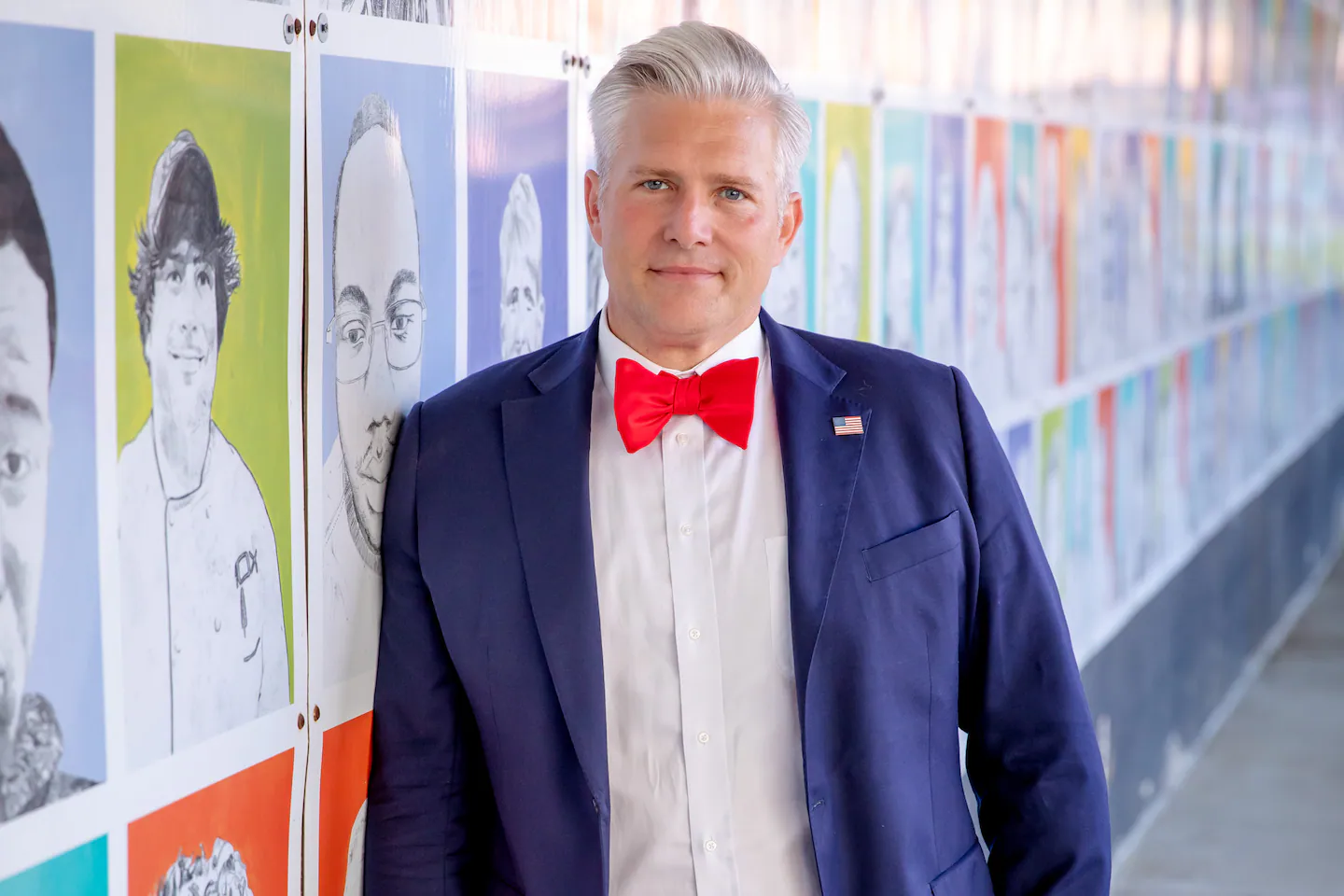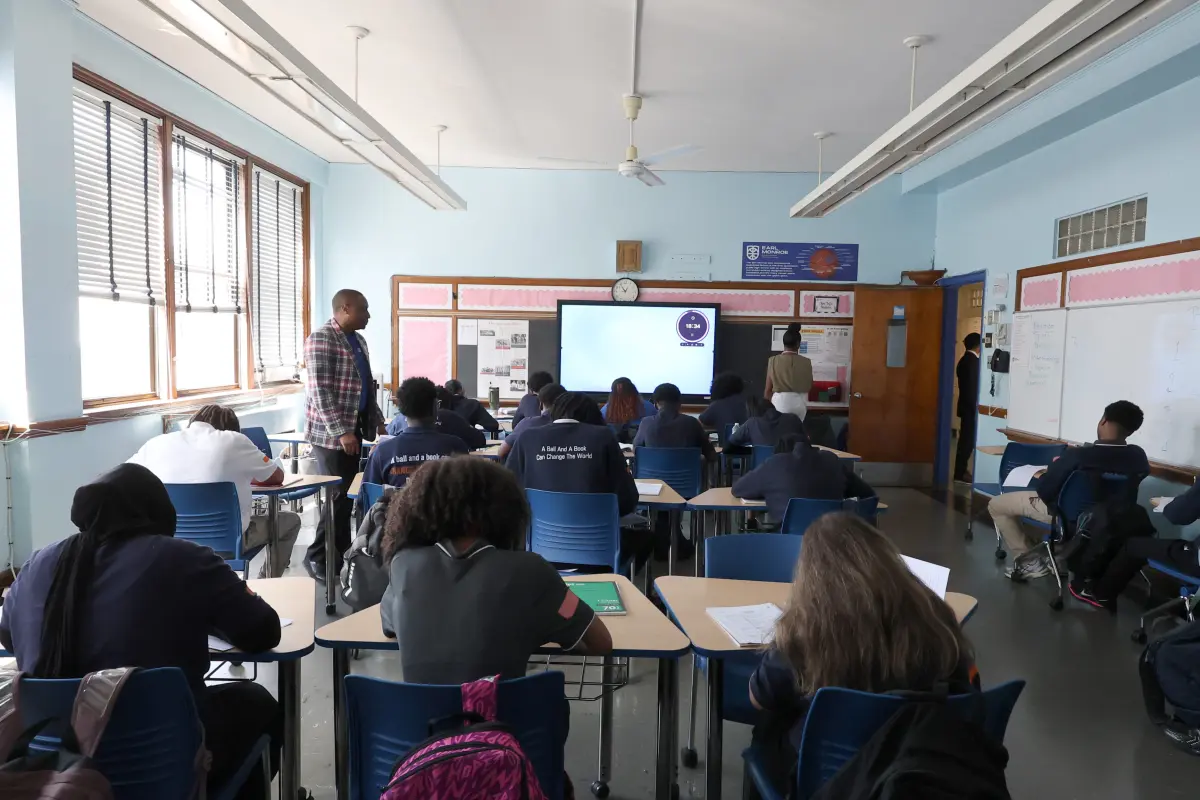Copyright The Boston Globe

Jakious isn’t the first to put his hand up to replace Moulton, and he surely will not be the last. He will join a primary field that grew quickly after Moulton announced he would challenge Markey in 2026. Former President Biden and Marty Walsh aide Daniel Koh, who ran for the neighboring 3rd District in 2018, is running, as is John Beccia, a lawyer and veteran of the financial technology industry from Lynnfield. Also, former state representative Jamie Belsito of Topsfield, who unsuccessfully challenged Moulton in 2020, and software engineer Bethany Andres-Beck, who launched a primary campaign against Moulton earlier this year. Jakious, 48, who lives in Swampscott, may be the closest thing to an incumbent in the race because he has been a fixture in Moulton’s district office in Salem for the past decade, as district manager and chief of staff. And in a state that loves incumbents, that has to be seen as an advantage. When I caught wind that Jakious was going to enter the race, I sat down with him to talk about not just this particular race, but to ask him how Democrats, especially in deep blue Massachusetts, can gain ground, rather than just wail, against the Trump administration. Jakious believes the secret to Trump’s success has been to convince just enough Americans that government doesn’t work, that it’s corrupt, that the rules have been skewed to screw ordinary Americans. “Part of the reason people voted for Donald Trump is that government was so broken and they saw little value in it that they handed a book of matches to a madman and said, ‘Burn it to the ground,” he said. “We have to start at square one. We’ve got to show people that we can get things done at the local level, so that they trust us to tackle the big things. Otherwise, we’re just screaming into the void. We need more public service, and less lip service. “The existential issue is the breakdown of the unspoken bonds and trust in the separation of powers, about not shaking down universities, about not deporting people for what they write in opinion columns.” His political philosophy isn’t left or right as much as it was articulated by the late, great Tip O’Neill, the Cambridge Democrat who rose to become US Speaker of the House: all politics is local. His approach is to politics what the Broken Windows theory is to law enforcement: if you fix the little problems, there’s more time to focus on the bigger, more intractable problems. Jakious’ prescription for combating the pernicious, cynical claim that government doesn’t work is to show people that it does work, that government can deliver the most basic services in a non-partisan, no-nonsense way. But that doesn’t mean going easy on Trump, or pointing out the way Republicans have ceded congressional oversight to allow Trump to do anything he wants. “Going after Donald Trump is the base line. You shouldn’t be in the arena if you’re not going to do that,” he said. “But I think too many people, both currently elected and people who are running, conflate that with being enough, that if I go on CNN or social media and shake my fists and show indignation, I’m taking action. That’s not enough. “I think we have to go back to the root cause of this problem. To me, it’s the idea that government isn’t functioning anymore, that people don’t have faith in government anymore, that it’s literally broken.” Jakious has seen it broken. The case of Tim White haunts him to this day. White was a homeless veteran who was living in a transitional housing unit at the VA campus in Bedford when he went missing in 2020. “He was missing for a month before they found his decomposing body in the stairwell, and he died because of the incompetence and corruption of the Bedford VA police,” he said. “Is this how we’re supposed to treat someone who served our country? He died, alone, in a (expletive) stairwell, and I think about that all the time, and there’s dozens of stories like that I’ve seen over the last 11 years, the way government failed people. “But I’ve also seen government work. And I’ve been part of making government work and it begins at the local level.” There was the anxious mom who called his office, because her son was two weeks away from dropping out of Merrimack College because he could not log in and draw down his student aid. “The kid was trying to get someone in the Department of Education to fix it, for a year,” Jakious said. “We were able to get through to the Department of Ed and unlock it.” Similarly, Jakious said, when Bent Water brewery in Lynn was unable to get the federal permit it needed, threatening its opening despite massive investment in Lynn, Jakious and his staff were able to cut through the red tape and secure the permit. Those may seem like little things, but not to the family of the college kid, or the brewer trying to bring good jobs and good beer to Lynn. “My thesis statement is we have to deliver at the local level,” Jakious said. “And if we want to get through the moment we’re in, and solve the big problems, we have to be able to show the people that we can solve the little problems.” One last thing: what’s with the bow tie? Jakious said his habit of wearing bow ties is both a sartorial and practical decision. He likes the look, but he has also found that people he’s met in his position will come up to him and say: Hey, I remember you, the bow tie. “Once we get beyond the bow tie recognition, we usually get back to some issue or policy matter that brought them into our orbit in the first place,” he said. Expect a lot of TV ads with bow ties in ‘em.



